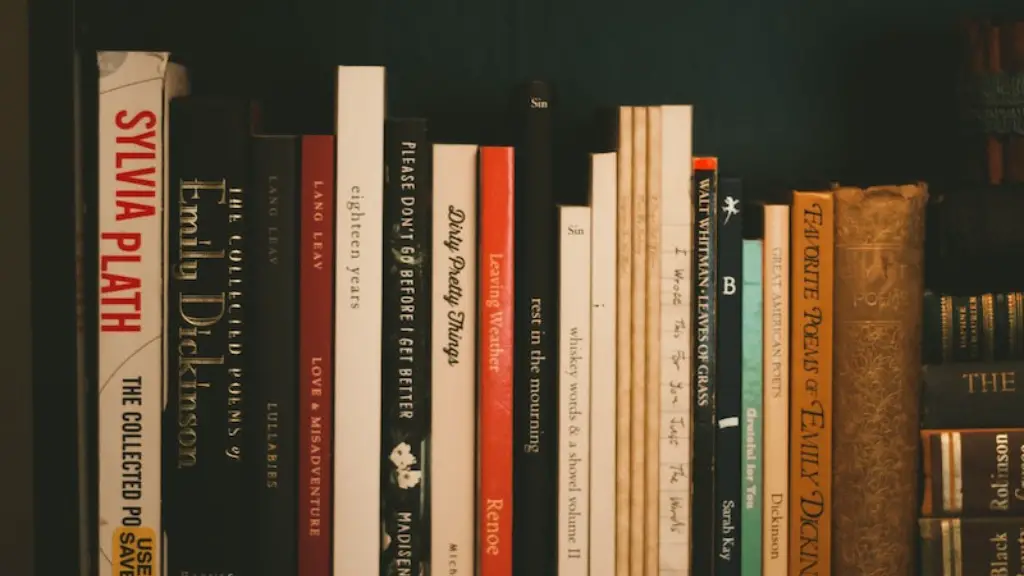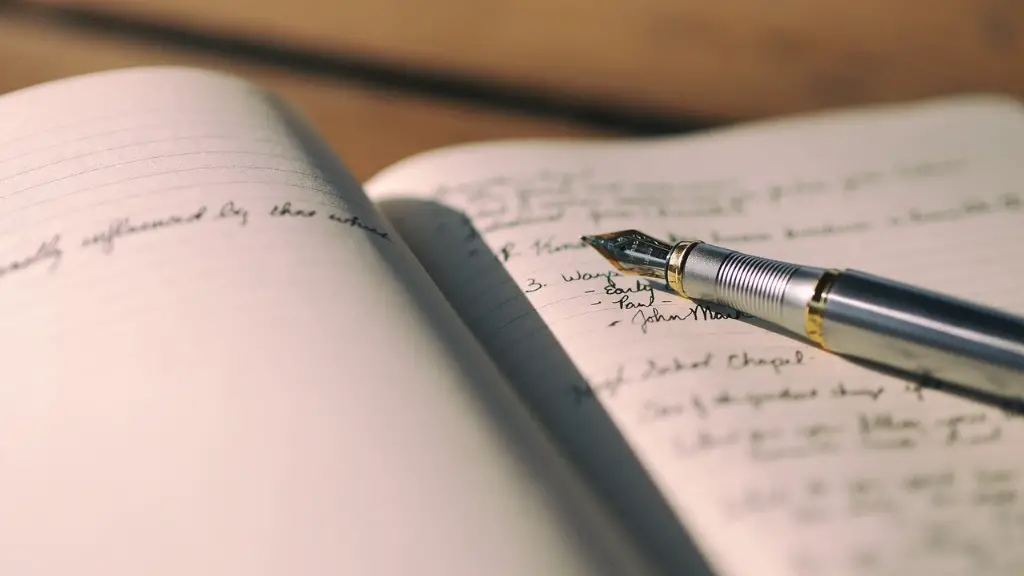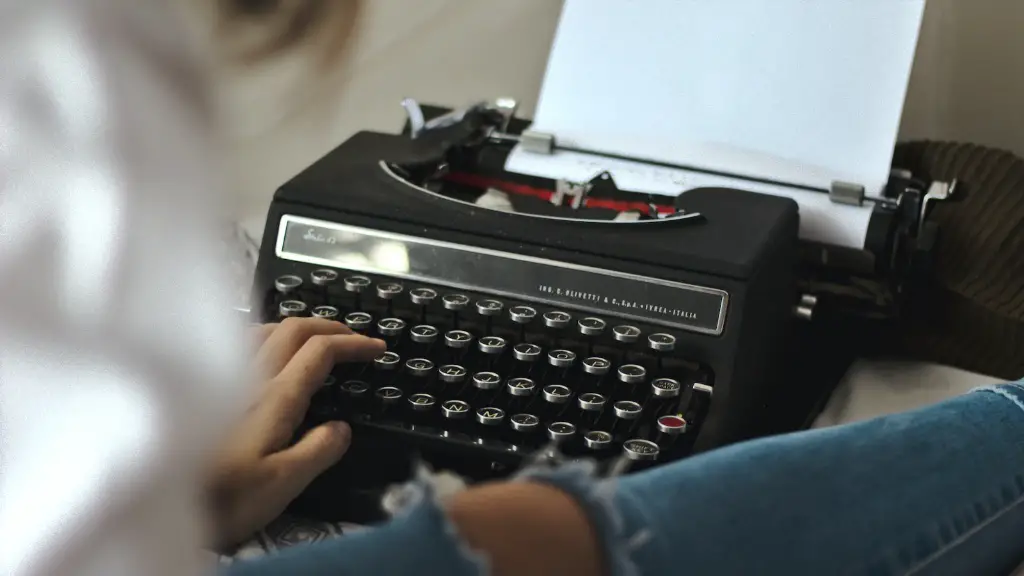The Benefits of Poetry Reading
Reading poetry is an enriching and enjoyable experience. Writing and reading poetry helps us to get in touch with our inner selves, helps us to make connections with others, and sharpens our understanding of the world around us. It also reveals insights and emotions that we may not otherwise have expressed. The use of metaphor and imagery in poetry can bring clarity and order to our existence and provides a creative outlet to express and explore ideas and feelings.
Reading poetry can also be an educational experience. Through examining and analyzing its language, structure, and themes, we can learn more about literature, gain a better understanding of history and culture, and improve our own writing styles and techniques. Poetry has the ability to touch us deep down, and can be a conduit for healing and transformation.
In terms of mental health, poetry can provide a form of escapism, by letting us escape into the creative world of the poem and away from the stress of our everyday lives. It can be an opportunity to confront the difficult emotions we may be facing and allow us to express these feelings in a safe and therapeutic manner. Research suggests that reading and writing poetry can provide a sense of calm and can be an effective tool in dealing with anxiety, depression, and other mental health issues.
For these reasons, reading and writing poetry can be beneficial to both our emotional and physical health. It can also be a positive way to build relationships and community and create meaningful connections with others. And of course, it’s just a lot of fun.
Types of Poetry
Poetry is one of the oldest forms of literature, with a rich history dating back centuries. It comes in many forms and styles, from classical works to modern-day rap songs. For those who are starting out on their journey of reading poetry, it can be helpful to become acquainted with the various types and styles of poetry. Here are a few of the main types.
Sonnets: Sonnets are a type of lyrical poem consisting of 14 lines in iambic pentameter, with a rhyme scheme of abab cdcd efef gg. Commonly used by poets such as William Shakespeare, sonnets have been around since the 13th century.
Haiku: Originating in Japan, the haiku is a short form of poetry that consists of three lines of five, seven, and five syllables, respectively. It often contains a season word, conveying a feeling of nature. It is a popular form of poetry as it allows the writer to express complex ideas and emotions in a minimal, yet powerful way.
Free Verse: Free verse is a form of poetry that shuns traditional rules of form and rhyme, allowing the poet to express himself without the confines of meter and structure. This makes it an ideal form for modern-day poets seeking to express themselves through experimental forms.
Limerick: Limericks are humorous, five-line poems consisting of an AABBA rhyme system. They often contain comical elements such as wordplay and puns, making them a favorite among those who enjoy light-hearted poetry.
Epic Poems: Epic poems are long narrative poems that tell stories of heroes and gods. Popular examples include “The Odyssey” by Homer and “Paradise Lost” by John Milton. These poems are often admired for their grandiose settings and timeless moral lessons.
Where to Find Poetry
There is no shortage of places to find poetry. From websites to books to readings, there are a plethora of ways to discover new and exciting works. Here are a few great places to start exploring poetry.
Online Poetry Sites: There are a variety of online sites where poets can publish their work for free. Popular sites include Poets.org and Verse Daily, both of which feature a diverse selection of poems from both established and up-and-coming poets. Many of these sites also feature sections devoted to poetry education and resources, such as forums and discussion groups.
Local Bookstores: Local bookstores are great places to pick up books of poetry. Check out their shelves for newly released titles and anthologies. You may even find some collections of older works that have been recently re-published. Local bookstores also offer a great opportunity to meet other readers of poetry and can be a great source of literary events and readings.
Poetry Readings & Festivals: Poetry readings and festivals have become increasingly popular in recent years, with a wide range of events taking place all over the country. These events are a great way to immerse yourself in the literary world and experience works first-hand from both established and emerging poets.
Writing Your Own Poetry
Once you’ve explored the world of poetry, you may start to feel inspired to write your own. Writing poetry can be very rewarding, allowing you to express your ideas and feelings in a creative and unique way. It can also provide a great way to explore different writing styles and techniques. Here are a few tips to get you started on the right foot.
Read, Read, Read!: A great place to start is to immerse yourself in the world of poetry. Read as many poems as you can to get a feel for different styles and techniques. Visit online poetry websites and browse local bookstores for new and exciting works.
Exercise Your Mind: Writing poetry involves a lot of creativity, so it’s important to keep your mind active and brainstorm new ideas and concepts. Keep a journal and fill it with inspiring quotes, thoughts, and observations.
Find the Right Medium: Different poets prefer different media for their work. Try out different writing tools such as pens and pencils, ink, and typewriters to find the one that works best for you.
Trust Your Instincts: Writing poetry can be a tricky business, and it can be easy to get lost in your own thoughts and ideas. Let your intuition guide you. Trust your instincts and know that the best works come from a place of passion and honesty.
Group Poetry Readings
Group poetry readings are a great way to get a feel for what other people are writing and to exchange ideas and feedback with fellow poets. Many cities have established reading groups and events that you can attend. These events usually involve a casual round-the-table discussion of the works of each member. You can even create your own poetry reading group with friends or family.
In conclusion, reading and writing poetry can be a rewarding and enriching experience. With a little bit of effort, you can quickly become familiar with different types and styles of poetry, start discovering new works, and even begin writing your own. With its potential for healing, connection, and education, poetry can be an invaluable asset to your life.





